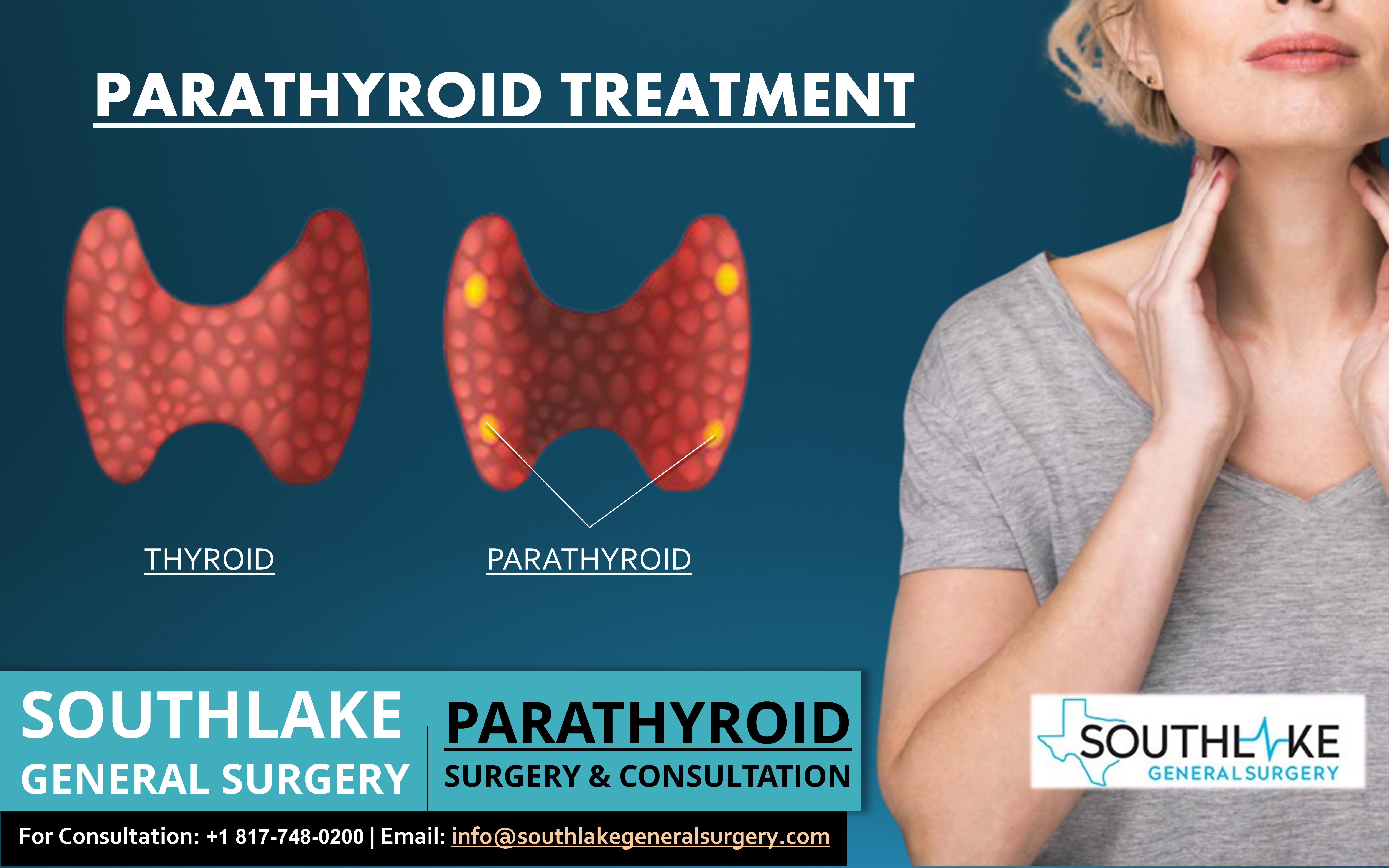The parathyroid glands are four small glands like the thyroid, located in the neck and close to the spine. These glands produce parathyroid hormone (PTH) that manages calcium levels and other minerals present in our blood.
What do we understand by “Parathyroidectomy”?
In medical terms, parathyroidectomy is referred as a surgical procedure if one or more of the parathyroid glands develop excess PTH and swell. This medical condition is known as hyperparathyroidism. An excess amount of calcium level in the blood takes off far beyond normal (hypercalcemia).
Reasons for Parathyroidectomy
Hyperparathyroidism is the most widely recognized reason for individuals to go for parathyroidectomies.
What causes the condition of hyperparathyroidism?
Causes of hyperparathyroidism include:
- In Hyperplasia, two different parathyroid glands swell and lead to generate excess PTH.
- Parathyroid cancer is also one of the factors.
- A rare condition of ancestral history of hormone problem passes to new generations.
- Conditions like benign tumours, or adenomas that happen on one of the parathyroid glands. These noncancerous tumours cause the glands to overreact and generate an excessive amount of PTH.
- Radiation therapy due to any medical condition close to parathyroid glands.
- Cancer in the parathyroid is quite uncommon.
What are the symptoms of Hyperparathyroidism?
The excess level of calcium in the blood refers to a medical condition known as hyperparathyroidism. This leads to the following medical conditions:
- Damage to the kidneys also holds more calcium than needed rather than delivering it in the urine. An excess amount of calcium in the kidneys may lead to kidney stones.
- Weak Bones condition happen when the PTH signals for more calcium in the blood cause the bones to discharge more calcium than usual. This makes the bones unhealthy, weak, and prone to breaking.
- Heightened Absorption is a condition where PTH makes the body consume more calcium than it requires from meals.
You may experience the following symptoms due to mentioned above conditions:
- Weak Muscles, Fatigue, or Joint’s pain
- Depression and lack of concentration
- Unusual dietary patterns
- Vomiting and Nausea
- Feeling puzzled and difficulty in remembering things
- urination issue and constipation
Conditions like high blood pressure and osteoporosis are connected with high calcium levels in the blood.
What are the risks of a Parathyroidectomy?
There are few risks involves with parathyroidectomy, such as:
- Development of Scar Tissue. This could bring about a requirement for additional surgery.
- Permanent Low Level of calcium. It mainly relies on the body to permanently generate low calcium after removing one or more parathyroid glands after the parathyroid surgery. An individual might be prescribed to take calcium and vitamin D supplements to maintain the health equilibrium.
- Parathyroidectomy Injury or Damage to the nerve that controls the vocal cords, to the esophagus, or to the windpipe.
- Bleeding Issue. It is a rare condition that could result in uncontrollable bleeding.
Parathyroid Treatment at Southlake General Surgery, Texas
Parathyroid surgery is also known as parathyroidectomy serious surgical procedure.
Conventional Parathyroidectomy. In this surgical procedure, the surgeon makes one four-centimetre incision into the neck muscle to get to the glands. Once the thyroid and the parathyroids are identified, the surgeon removes the damaged or infected parathyroids. The surgeon will also examine the PTH-level test to identify the parathyroid(s) to eliminate. Post-surgery, the patient will stay in the hospital for at least 24 hours.
Minimally Invasive Parathyroid Surgery. If the problem is due to adenoma, a neck ultrasound is sufficient to find the exact location. This will help the surgeon to identify the exact parathyroid gland that needs to be removed.
The rest of the parathyroid glands are examined if the body’s PTH level doesn’t level out. The patient feels less pain, fewer minor scars, don’t have to stay in the hospital after the surgery and recovery will be faster.
Transoral Parathyroidectomy. This is one of the modern advancements that will not require any incision whatsoever. In this procedure, the surgeon gets to the parathyroid through the patient’s mouth and removes the gland. This procedure will not have post-surgery scars and is simpler to recuperate from this procedure.
How to prepare for Parathyroidectomy?
Before parathyroidectomy, the doctor will prescribe a couple of following tests:
- Ultrasound, CT scan, MRI, Blood Tests, Full body X-Ray examination, urine tests, and bone density screening.
- Sestamibi scan for parathyroid disease, in this test a small radiation amount is injected into the body.
Prior to the surgery, the doctor will request you to stop taking an aspirin a week prior to your parathyroid surgery. Take good sleep at night before your surgery day and don’t eat or drink on the surgery day.
Recovery After Parathyroid Surgery and After Parathyroid surgery care
Generally, after parathyroid surgery care is somewhat negligible, the patient needs to clean and protect the surgical incision on the neck. If you encounter any swelling and redness in the surgical region, please contact the doctor immediately.
In many cases, the patient can get discharged after 24 hours and you can resume your regular activities within three weeks. The patient must adhere to the doctor’s diet plan, which may restrict your diet in terms of fluids and soft meal varieties for some time.
After the parathyroid surgery, the patient should follow the appointment schedule fixed by the doctor to check the blood calcium levels. This test will help your doctor to check the remaining parathyroids are functioning properly.
For more information on Parathyroid Treatment and Laparoscopic Parathyroid Surgery, Parathyroid disorder, Parathyroid symptoms, parathyroid diagnosis, or consultation with a parathyroid surgeon in Texas. Please contact our healthcare expert today at +1 (817) 748-0200. To book online Appointments. Please Click Here.
Follow us on Facebook

